Stand-in President 'Brings Back Bible' To Bolivian Politics
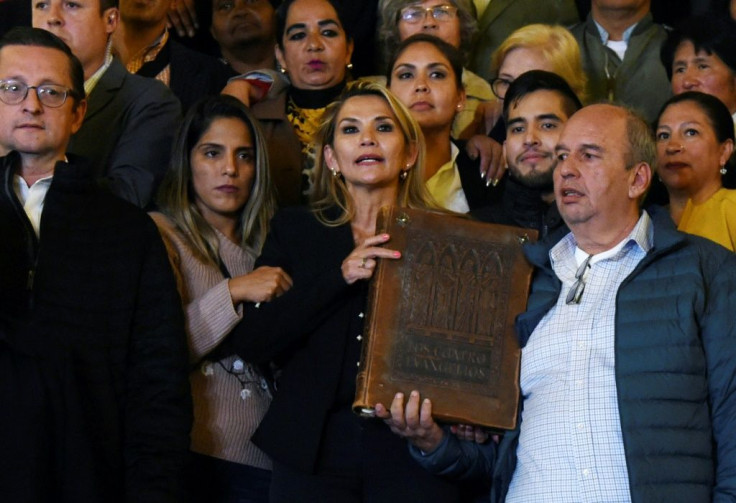
Mounting the steps of the presidential palace as acting head of state, Jeanine Anez raised in both hands an old leather-bound volume of the holy Gospels.
The gesture made it clear what side of the country's political and social divide she was on -- and reflected the rise of Evangelical groups in the Latin American country.
Gone was Socialist leader Evo Morales, an atheist who had done away with oaths on the Bible and had overseen a new constitution that made Bolivia a secular state.
Now Morales's opponents -- conservative and Christian -- were back in charge.
"God has allowed the Bible to come back into the palace. May he bless us," Anez said.
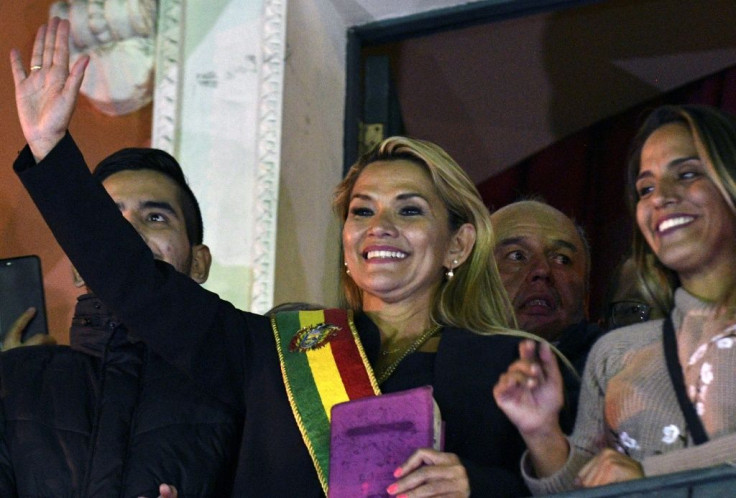
"Glory to God!" yelled supporters gathered around her.
Anez ascended to the balcony of the palace, where she was handed another volume, a Bible in a purple cover, and waved it triumphantly.
Latin America is largely Catholic but over recent years other, Protestant-rooted churches have flourished.
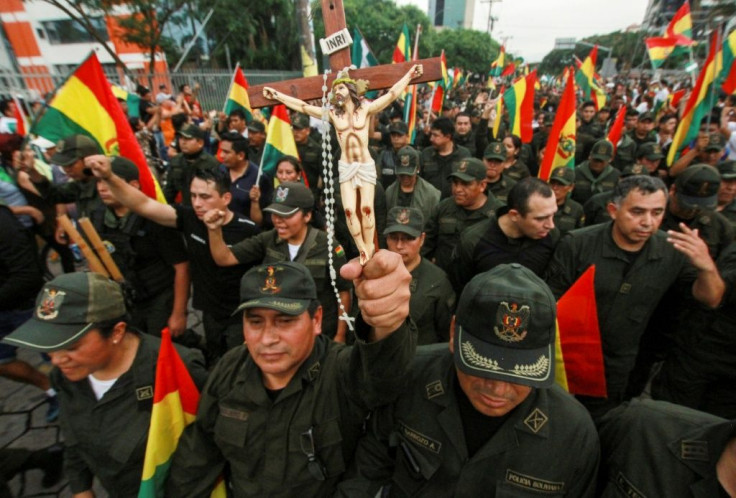
In neighboring Brazil, they played a prominent role in the election that brought far-right President Jair Bolsonaro to power last year.
In Bolivia, a survey published in September by newspaper Pagina Siete indicated about 75 percent of Bolivians were Catholic and about 18 percent Evangelical.
Before Morales became president in 2006, state officials would typically take the oath of office on the Bible, crossing themselves and swearing by "God and the fatherland."
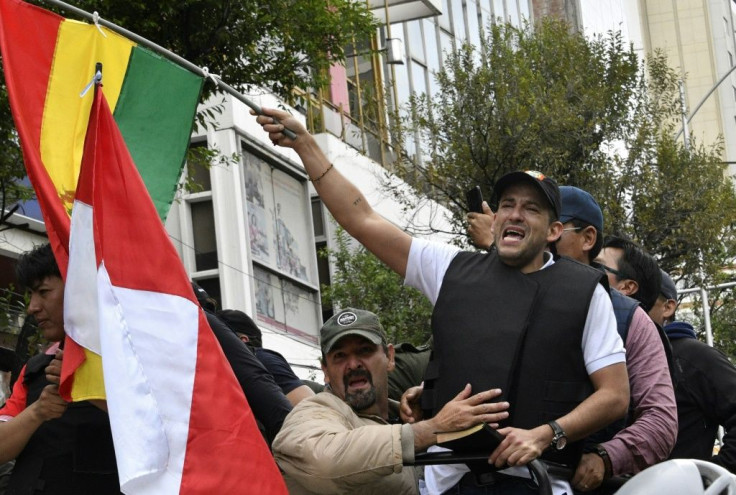
The country's first indigenous leader, from a poor coca-growing region, Morales expressed mistrust of Christianity, associating it with European colonists who massacred indigenous people.
He ended the practice of religious oaths of office: under his leadership officials would raise their left fist and put their right hand on their chest.
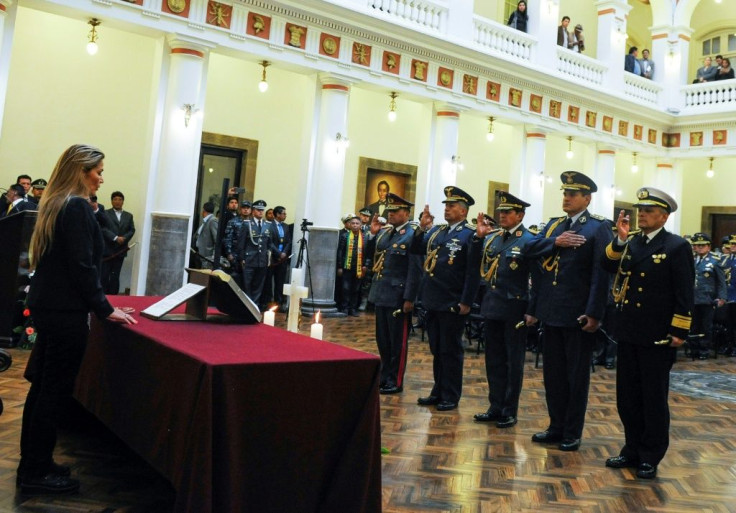
The Bible made a come-back to public life and political discourse during the angry clashes that erupted after the election on October 20.
Morales's opponents accused him of rigging the result, while he accused them in turn of plotting a "coup" against him.
Amid deadly unrest, one of his most prominent opponents, Santa Cruz regional leader Luis Fernando Camacho, invoked Biblical powers in his bid to oust Morales.
In a speech to supporters at the foot of the Christ the Redeemer statue in the central city, he vowed to bring a Bible to the presidential palace to force Morales out.
"I am not coming with weapons, I am coming with my faith and my hope, with a Bible in my right hand and his resignation letter in my left," Camacho told supporters.
His call was seen as harnessing support from both traditional Catholics and Evangelicals.
On Sunday after Morales fled the country, Camacho finally entered the palace and kneeled inside, laying down a Bible over a Bolivian flag.
Even before the contested decision to name Morales winner of the vote, the rise of Evangelicals had marked the electoral campaigns.
One candidate who rose to prominence was Chi Hyun Chung of the Christian Democrat Party, a Presbyterian pastor who vocally opposes homosexuality and abortion.
The contested count indicated that he had received 8.8 percent of the votes, behind Morales's lead conservative rival Carlos Mesa.
Analyst Cesar Cabrera interpreted this as the result of protest votes, particularly among discontented young voters -- and a sign of a "macho conservative" current in Bolivia.
The Organization of American States has audited the election results. It recommended canceling them and holding new polls.
The secretary general of the OAS, Luis Almagro, called on the Catholic Church in Bolivia to calm the unrest by calling the two sides to negotiate.
He said "institutions with legitimacy" were needed to mediate.
© Copyright AFP {{Year}}. All rights reserved.





















